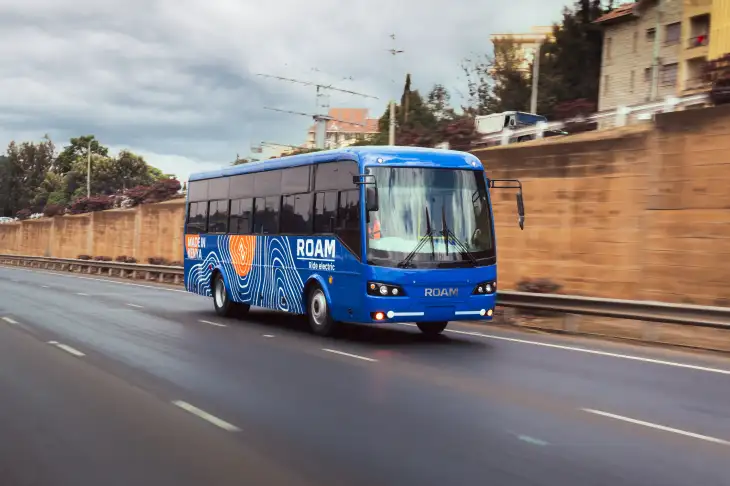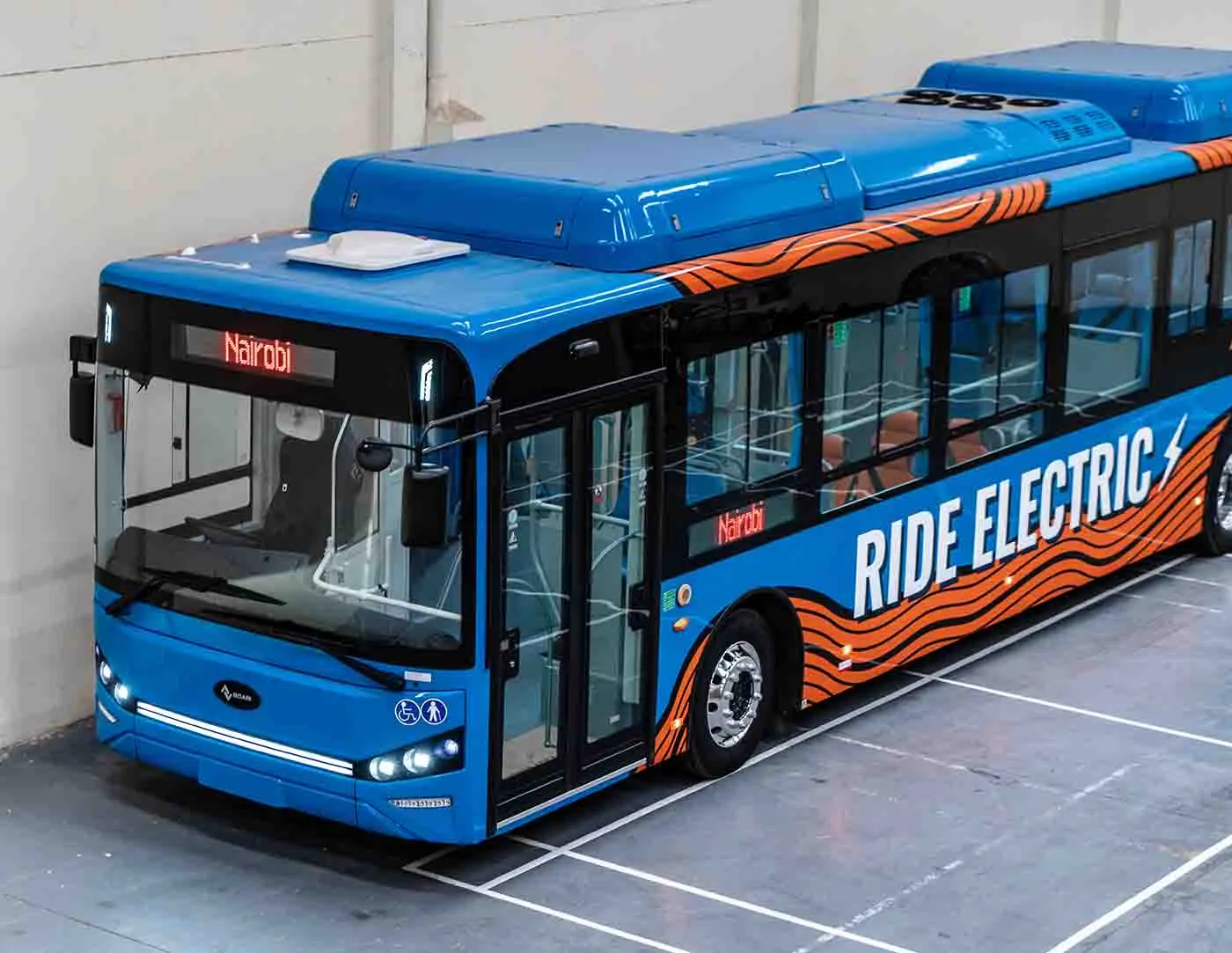Kenya-based EV startup Roam Unveils New Bus Model – Roam, a Kenya-based electric vehicle startup, has just unveiled a new shuttle bus model nicknamed Move, as the East African country continues to push for the adoption of electric vehicles. Roam, founded in 2017 by Gardler, Filip Lövström, and Mikael Gnge, focused on auto conversions before transitioning to electric vehicle production.

Roam (formerly Opibus) intends to increase production of the Move bus and expand its charging infrastructure as it anticipates an increase in EV bus demand as a result of Kenya’s acceleration of electric vehicle adoption, against the backdrop of skyrocketing fuel prices, and calls for a shift to sustainable transportation options.
Roam intends to deliver 50 Move buses by February of next year and to produce 40 units per month at full production capacity. The 42-seater buses will cost $135,000 and have a range of 200 kilometers. They will be constructed locally with parts purchased from China. Also, the bus can be built to accommodate and transport 52 passengers.
Roam, claims it designs its own buses, and they are all designed with considerations and in accordance with local requirements, including high ground clearance. “Building the body locally also enhances our design offering; we can move the door, build more boot space, accommodate preferred window fittings, or add air conditioning, and so on,” said Dennis Wakaba, Roam’s country sales officer.
Roam Move comes after the company revealed plans in 2021 to build EV buses to complement its motorcycle manufacturing business. It also comes on the heels of the July debut of Roam Rapid, which is intended to tap into Kenya’s planned (now stalled) Bus Rapid Transit (BRT) system, which was supposed to be powered by green (electric, hybrid, and biodiesel) cars. BasiGo, its main competitor, currently operates tens of EV buses on major routes in Nairobi, Kenya’s capital.
Also see: Worldcoin plans to resume iris scans in Kenya
“We started off by designing our own electric power trains back in 2018, and we have a lot of in-house expertise. We have that competence in-house that gives us more flexibility in terms of what products we can bring to the market,” Wakaba said.
Roam is backed by a Silicon Valley venture capital firm. One Ventures, Factor[e] Ventures, and Ambo Ventures, a pan-African venture capital firm,
The Move bus continues Kenya’s ongoing drive for EV adoption, which includes zero-rating the supply of electric buses and bicycles, as well as exempting imported and locally produced motorcycles from excise duty in the current finance legislation. There are also particular power (charging) tariffs in the country.
Kenya’s energy authority released the Electric Vehicle (EV) Charging and Battery Swapping Infrastructure Guidelines 2023 last week to, among other things, speed up the construction of public charging stations, which remains a major hurdle to adoption.
While Kenya is laying the groundwork for a transition away from fossil fuel vehicles, overall, African electric mobility adoption remains sluggish when compared to the developed world due to a number of challenges such as weak electricity grids, high EV acquisition costs, and insufficient charging infrastructure.
About Roam
Roam was founded in 2017, at a time when electric mobility was just taking off and electric automobiles were only hitting the streets. Roam’s mission is to make electric transportation more affordable to a wider market by making the technology more cost-effective and simplifying implementation.
The company primarily manufactures all-electric conversion kits for fleet vehicles such as light trucks, public transportation, and buses, as well as electric motorcycles and energy systems. These emphasis areas were chosen to have the most possible impact, as these cars are among the highest CO2 emitting vehicles on the market and represent a largely unexplored possibility. As a result, Africa is setting the benchmark for electric mobility.
















